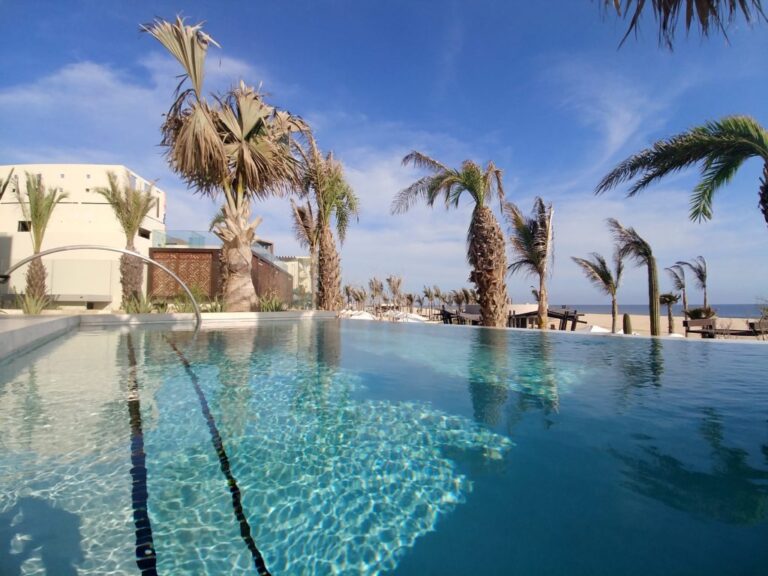One of the first things I learned when I started in the travel industry was how to talk like a travel agent. There are lots of industry-specific terms and acronyms, as with any industry, that make it easy to tell the legit from the posers and throughout this blog, I use them all. Rather than defining each one independently, I figured I define them all at once in a blog glossary.
As I realize I’ve forgotten a term, I’ll add it to the glossary and I’ll do my best to link to the glossary at least once each time I use an industry term in a post.
Arrival Day
The contracted start date of the trip.
Attrition
The number of rooms you can give back to the hotel without penalty. Usually as a percentage. If a contract has 20 rooms and 20% attrition, you can give back up to 4 rooms without penalty as long as you do so prior to the cut off date.
Block
The group of rooms in a contract, also referred to as a ‘room block’.
Commission
A “finders fee” provided to agents who bring business to an entity such as a hotel. Rates are stated as percentages and are usually between 5% and 15%. This is how much travel agents and tour operators make their money.
Concessions
An extra service, amenity or item included in a contract at a reduced rate or at no charge to entice a client to sign with a certain hotel. Concessions often include parking, internet and breakfast.
Cutoff Date
The final cancellation date, final attrition date and in many cases, the date the rooming list is due. Usually, this date is 30 days prior to the start date of the trip and is always defined in the contract.
Departure Day
The contracted end date of the trip.
DMC – Destination Management Company
A DMC is often an expert in a certain area and can provide packages or a connection with vendors. Often used when doing business in an area you aren’t familiar with.
Excursion
An activity, event, meal, party, etc. usually taking place off-site.
Flight Manifest
A completed list of all flights for a trip. Flight information is collected from guests prior to travel, usually via an online form, and is provided to the transportation vendor via the Flight Manifest.
General Manager
In context of a hotel, the General Manager is the head of all departments with individual department managers under them. The Front Desk Manager, Group Sales Manager, House Keeping Manager, Head Bellman, etc. would all report to the General Manager.
Guest
A traveler who is part of the group and has purchased the package.
Headcount
A count of all guests on a trip or all guests on a transportation vehicle.
Host
The on-site staff member, not associated with the hotel, who manages the group. This person serves as an intermediary between the hotel and the guests to resolve issues and manage expectations.
Host Agency
A bonded, accredited agency with an IATA number. Host agencies provide their IATA number to individual travel agents and smaller agencies to help agencies collect commissions that wouldn’t otherwise be able to collect. Almost all travel agents and agencies work with a host agency. Host agencies collect a percentage of the commission earned on each booking a travel agent or agency makes.
IATA – International Air Transportation Association
IATA sets standards for global airlines and airlines business practices. IATA also sets standards for other aspects of travel and functions as an intermediary between hotels and agents. Hotels will pay commissions to IATA and IATA will use IATA numbers to disperse those commission to the appropriate agency.
Many people use this acronym to mean International Association of Travel Agents but it’s true meaning and the governing body that issues IATA numbers is the International Air Transportation Association.
IATA Number
A unique identifier for travel agents or host agencies. Used to route commissions back to an agent or agency.
IATAN – International Association of Travel Agents Network
Commonly confused with IATA, the IATAN is a US-based industry association that functions within IATA and works to represent the interests of it’s member companies and individuals.
Minibus
A medium sized bus with between 30 and 40 seats.
Motorcoach
A large bus with between 55 and 60 seats. In any trip with a major transportation component, it is preferable to plan on one host for each motorcoach.
Movement
In context of transportation, a movement refers to a single transfer. The movement can include a one-way trip such as an airport transfer, a roundtrip with a stop in the middle such as transportation to a stadium for a game, or it can include multiple stops such as a tour.
MSA – Master Service Agreement
A contract between two entities that defines how each entity will do business in future transactions. In the hotel industry, an MSA can include standardized pricing, concessions, etc.
Off-site
Refers to any inclusions or locations outside the hotel property.
On-site
When you are physically at the hotel included in the package or in the city or country the package is taking place.
Package
A pre-designated set of inclusions sold as a bundle. Usually includes hotel and an activity. It can also include airfare, transportation, transfers, tickets, tour, etc.
Planner
An individual at an agency or company who plans group travel. Planners often work for tour operators to build packages.
Post Night
Any nights a guest added after the official departure day of a package.
Pre Night
Any nights a guest added prior to the offical arrival day of a package.
Room Nights
The total number of nights in a hotel group contract. If you have 10 rooms for 3 nights, you have 30 room nights.
Rooming List
The list of all guests, room types, room notes, etc. that is provided to the hotel at least 30 days prior to the group’s arrival. All the reservations for a group block are provided to a hotel via the rooming list.
SLA – Service Level Agreement
The contracted services an entity agrees to provide. SLAs in the tourism industry can include host-to-guest ratios, customer service agreements, minimums, etc.
Spot Time
The time transportation is scheduled to arrive. Usually 15 – 20 minutes prior to the arranged departure time. A spot time of 10:45 could be assigned for a 11:00 departure.
Sprinter/Coaster
A small bus with between 25 and 30 seats.
Tour Operator
A company that builds tour packages and resells them to businesses, clubs, schools, etc. Tour operators build the packages that travel agents sell. Tour operator is usually a term used for a company as opposed to an individual but this is not always the case.
Transfer
Moving guests from one location to another. An airport transfer, for example, moves guests from the airport to their hotel.
Vendor
A company that provides a specific service. Vendors provide a specalized service such as transpotation, tour guides, etc. Usually a package is made up of peices from multiple vendors.
Walk
If a hotel overbooks themselves, they will move a guest to another property. This is called ‘walking a guest’. A guest or group being walked is often upgraded or put in an equivalent quality hotel and the original hotel pays the bill at the new hotel.







